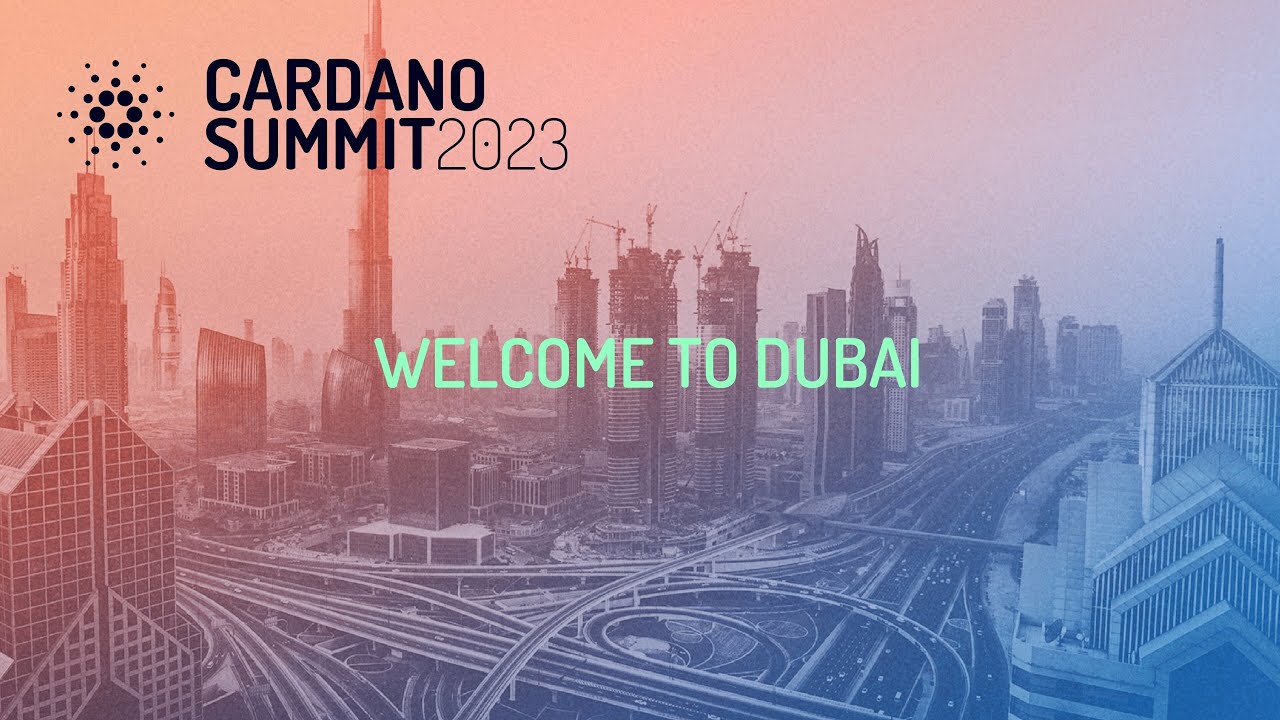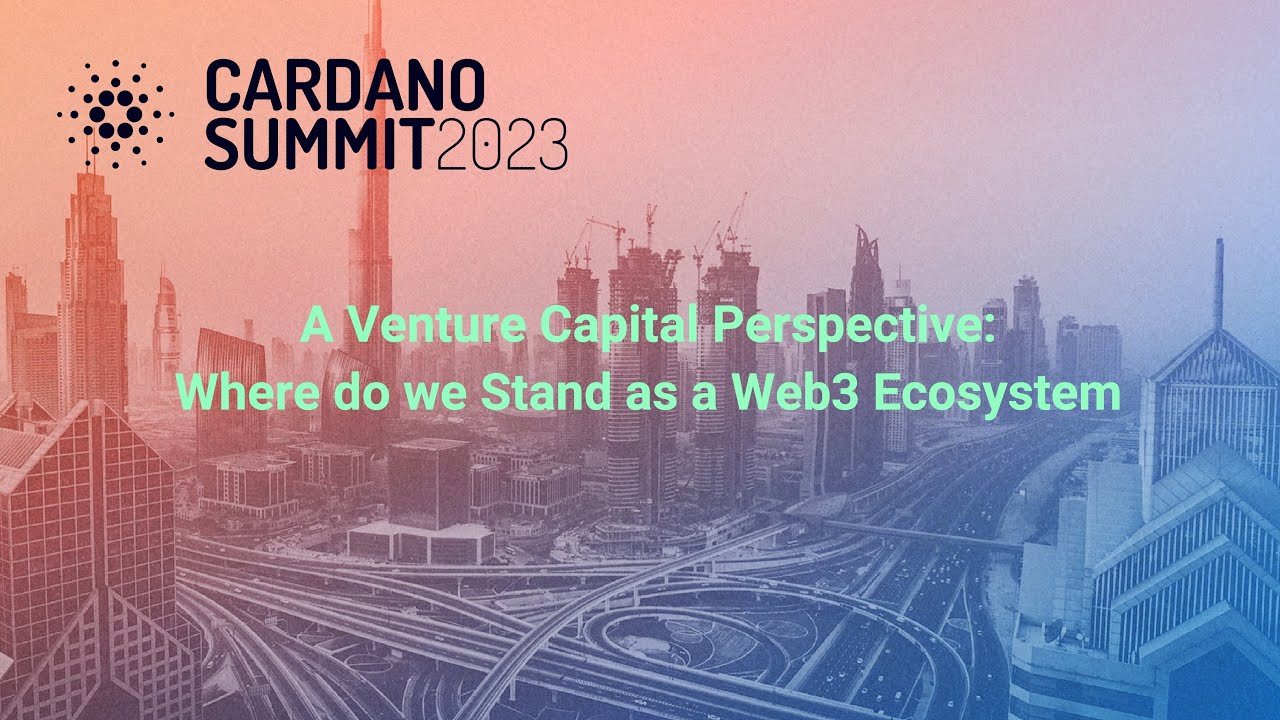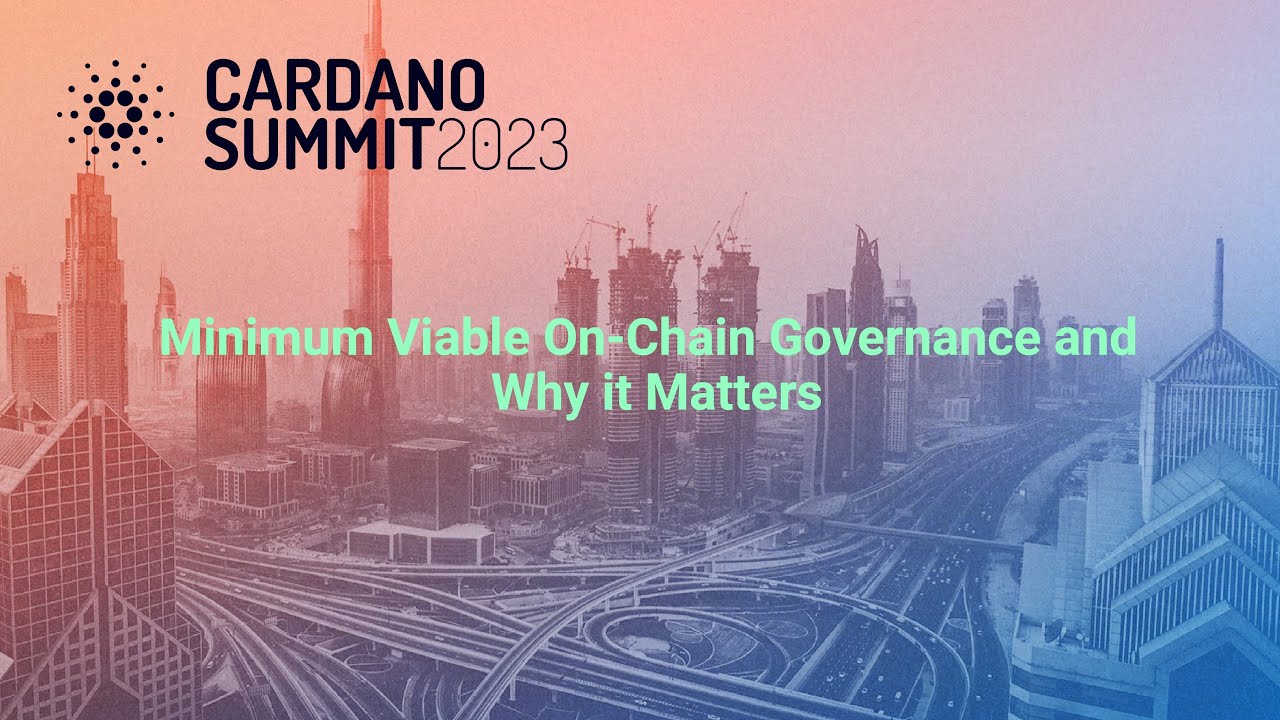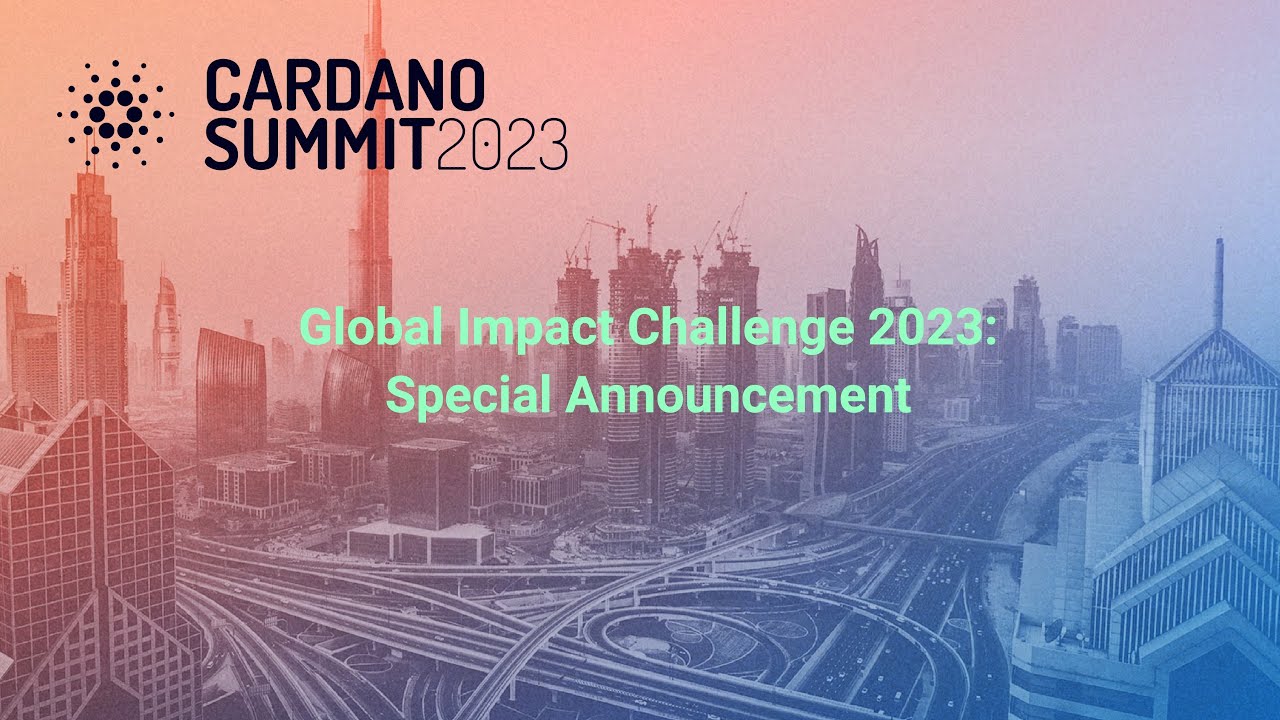After the networking soirée on 2 November, the Cardano Summit 2023’s first day of conferences kicked off yesterday, hosting in-person and virtual attendees from all around the world. Day 1 of the Summit featured over 35 sessions and more than 55 speakers discussing and presenting about operational resilience as well as education.
Dr. Marwan Al Zarouni welcomed everyone to Dubai, explaining how the United Arab Emirates brings different cultures together to build the future. Stressing the country’s strategy to leverage blockchain technology where it proves most applicable, Dr. Al Zarouni also prompted everyone to not rely on luck or circumstances but instead take initiative.
A blockchain to resonate through history
In the keynote “Enterprise Blockchain is Dead; Long Live Blockchain for Enterprise” Frederik Gregaard, CEO of the Cardano Foundation, discussed how crucial it is to maintain and nurture consent at all times as digital technologies get progressively more interwoven into the fabric of society. Gregaard emphasized that operational resilience has become not only a feature of digital infrastructures but actually one of the main drivers of sustainable progress. In fact, Cardano keeps evolving, consequently enabling broader horizons for blockchain. It stands as a public infrastructure designed for the 21st century and meant to enhance the social systems of the world.
As Gregaard said, Cardano is “not designed for the few, it’s designed for the masses”. Indeed, it has an ethos that enhances participatory governance and social systems. So Gregaard thanked the ecosystem for believing in, as well as building on Cardano, and concluded by highlighting how Cardano sends a “clarion call to all industries and social systems to join us in this journey, to partake in a future that is not only resilient but also equitable and transparent”.
The panel “Essential Governance: Building Strong Blockchain Foundations” took place next on the Main Stage, drawing on insights from the Boston Consulting Group’s research about the essential elements for building robust blockchain foundations. The discussion explored topics like governance models, organization structures, processes, and ways to ensure blockchain initiatives succeed. Dr. Bernhard Kronfeller, Partner & Associate Director at Boston Consulting Group, emphasized that the race for mass adoption has already started within an evolving regulatory environment, making it essential for projects without a solid footing to pivot quickly.
At the Pitch Arena, representatives from the Cardano Foundation, EMURGO, IOG, and Cardano MENA explored transparency in the age of Voltaire, the governance phase of the Cardano blockchain. The panel examined why this era will require accessible solutions, tools, and interfaces that anyone can use worldwide, even those new to Cardano. At the core of these considerations, Juana Attieh, from LALKUL and Cardano MENA, noted that the ongoing challenge of governance lies in it being endless, which makes it important to think of new ways to engage and motivate participation.
Charles Hoskinson, CEO and Founder of IOG, and Eran Barak, CEO of Midnight, took to the Main Stage to discuss the importance of Cardano’s builder and creator community in the age of Voltaire. The two reflected on how these individuals set Cardano apart from other protocols beyond the realm of technical fundamentals. In exploring Cardano’s journey and its future, Hoskinson elaborated that having a governance system and giving people the power to change it can lead to amazing things.
Building a more connected and inclusive ecosystem
Back on the Pitch Arena stage, panelists from the Cardano Foundation, Wanchain, Maestro, and Router Chain explored world applications, classification, obstacles, and security aspects of interoperability. Marvin Bertin, CEO of Maestro, noted that enterprises care most about functionality and creating value for their users, making it important to deliver cross-chain functionality while avoiding to overburden users with the management of Web3’s technical complexities.
In “Diversifying Access to Blockchain with Education” the panel explored how people can harness their theoretical knowledge and apply it within the blockchain space. Describing the current ecosystem, Nikhail Joshi, COO of EMURGO, highlighted that a multi-pronged solution from governments, organizations, and the private sector is needed to fully educate societies.
Over on the Main Stage, panelists also delved into the world of blockchain education, exploring how equipping individuals with blockchain knowledge fosters innovation and industry growth. On this point, Marcelo A.F. Curi, Blockchain and Crypto-Token Economy Certified Solution Architect, highlighted the shortage of understanding in regards to select protocols, a reality that can stifle innovation, further stressing the importance of educating leaders and key stakeholders alongside the broader society. Dr. Jasmina Locker, on the other hand, underlined how blockchain allows for transparency and trust, including when it comes to student credentials, making it easier for them to have their records verified when moving to different countries.
Next up, a panel of legal experts navigated the global blockchain regulation situation and explored where the industry goes from here. The group noted that after years of fact-finding and development, licensing for blockchain-based business models has started reaching mainstream debate. However, compared to the existing financial market, the jurisdictional differences still remain significant. Beyond regulatory uncertainty, Robert Kopitsch, Secretary General at Blockchain for Europe, surmised that, due to frequent doubts about the cost of adopting blockchain, creating incentive models for incumbents stands as one of the biggest hurdles worldwide.
Teodor Petricevic, Accelerator Lead at United Nations Development Programme (UNDP), announced the third Cardano Global Impact Challenge partner. Tadamon, a UNDP-led community platform for civil society empowerment, has partnered with the Cardano Foundation to increase awareness of how blockchain technology can address the development challenges faced by civil society organizations (CSOs) across Africa, the Middle East, and Asia. The partnerships will develop capacity-building programs, knowledge-sharing initiatives, training sessions, and collaborative events to foster knowledge about blockchain technology.
Day 1 of the Summit concluded with a desert dining experience, offering attendees a feast of traditional Middle Eastern hospitality amidst a thrilling show. The Summit has now returned for a full day of masterclasses and panel discussions on adoption and impact. Afterward, the Gala Awards Dinner will conclude this year’s event while announcing the winners of the Hackathon and Summit Awards in a ceremony live stream on the Summit app.
Original Source: ’Cardano Summit 2023: Day 1 recap’ by David Taylor, published on November 4, 2023.















